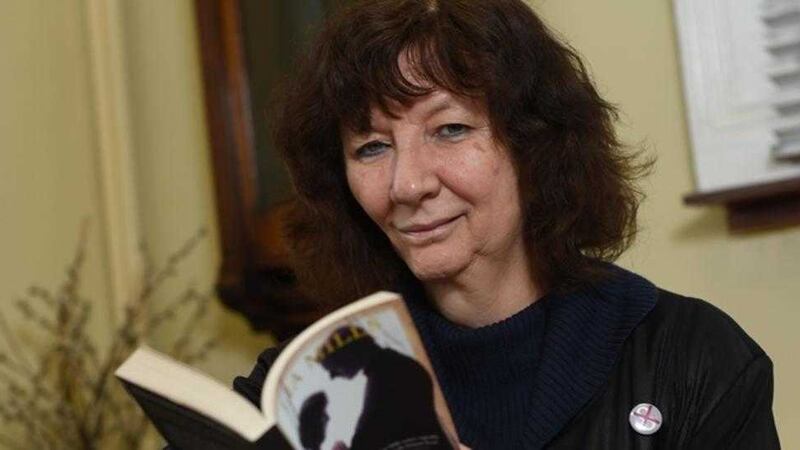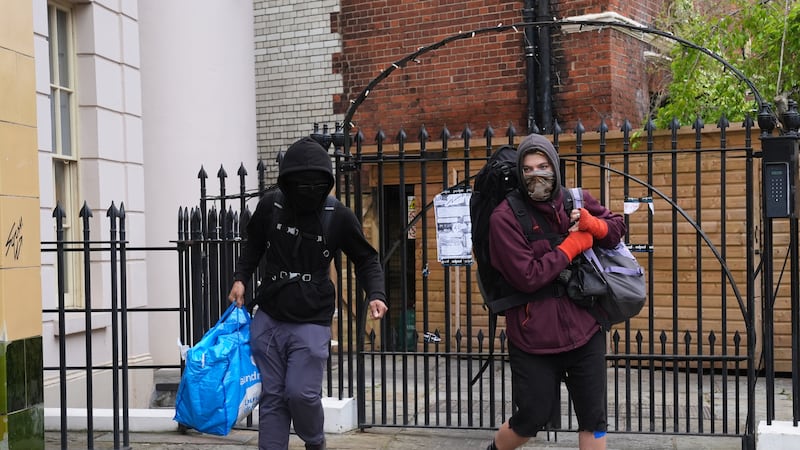WHAT would it be like to find your city taken over by forces you don't understand or recognise and you don't know where it is going to end? This is the question posed by Dublin author Lia Mills in her novel Fallen.
Set in her native city in the early years of the 20th century, Mills's book tells the story of Katie Crilly, a young independent woman trying to find her place in a restrictive society, when she gets the news she dreaded: her twin brother Liam has been killed on the Western Front.
A year later, Dublin is engulfed by the violence of the Easter Rising. Katie is torn between her loyalty to Liam's memory, her patriotism and her love for her city and its people. Taking refuge in the home of friends, she meets Hubie Wilson, a comrade of Liam's from the front. There unfolds a remarkable love story between two young people, both wounded and both trying to imagine a new life.
Despite being a historical novel, Fallen deals with the contemporary issue, as seen in countries like Syria, of living in a conflict situation and the stark reality of war.
Mills's novel, which she describes as "a fictional interpretation of what it might have been like to have lived through the Rising" has been chosen for the Two Cities One Book project – a joint reading intiative between Libraries NI and Dublin City Libraries as part of Ireland's 2016 commemoration programme.
During the month of April readers in Belfast and Dublin will be encouraged to share their views on topics such as politics, feminism, patriotism and social inequality, as raised in Fallen. A rich and varied programme of supporting events in the areas of art, drama, fashion, music and poetry from the era will also feature in Belfast and Dublin libraries throughout the month.
Mills spent a lot of time in libraries when growing up and credits them for contributing to her journey to being an author.
"I was a wayward sort of a teenager and I think books were what I held on to. I went to books to learn how to live. I think we all do," she says.
Fallen, published in 2014, was Mills's first historical novel, others having been responses to contemporaneous events: Another Alice (1996) was written during a litany of sexual violence cases that surfaced in Ireland in the early 1990s; Nothing Simple (2005) is an emigration story set in the 1980s; and In Your Face (2007) is a memoir of her diagnosis of and treatment for oral cancer.
Rather than a calculated or rational decision to write a novel to coincide with our current decade of historical centenaries, Mills's starting point was a visit to the area in Dublin that her grandmother lived.
"I was doing research around turn-of-the-century Irish women writers when I visited the area in which [my family's] shop used to exist and it struck me that my mum would have been a toddler there at the time of the Rising with the British army right outside her door," she recalls.
Her mother was a toddler living over her father’s butcher's shop on Parnell Street, a street bordered by tenements, where there were days of looting and raging fires. Her own dad’s family lived on Merrion Row, where he would be born 10 weeks later.
Mills regrets she does not have any accounts of how either set of grandparents thought or felt about any of these events. But it was imagining what it might be like when the streets of your city suddenly erupt in murderous chaos over which you have no control which was the impetus for Fallen.
Mills spent a residency in the Centre Culturel Irlandais in Paris, which coincided with the anniversary of the liberation of Paris in 1944.
"Everywhere I looked there were plaques and memorials and flowers on almost every street corner remembering a place where somebody lost their life. Remembering the wars seemed part of the fabric of the city. [In Dublin] we remember the names of the 16 men who were executed, but not the civilian impact.
"I think that is starting to change and the centenary commemoration's are valuable in that we are learning the extent of the constructive civic work that ordinary citizens did – the firemen, the ambulance men, the doctors, the nurses and ordinary citizens who opened their homes to strangers injured on the streets or brought linen and food to the hospitals".
Fallen took Mills a number of years to write, mainly due to the extensive research she undertook. As well as reading historical accounts of the First World War and the Easter Rising, she visited the Imperial War Museum in London, Dublin's Collins Barracks and spent many hours walking the streets of Dublin.
But one of her favourite resources was found in her local library – the Collins Street Directories.
"They are a real social history, providing statistics on the population of the city, the chamber of commerce and unashamedly detailing the gentry of the time".
Mills has started a new novel but she is waiting to see where her words take her.
"At the moment it's set outside time. All novels play with time – historical novels do it differently because they create an illusion of being in an actual time. But I've told my family to shoot me if I do another historical novel," she laughs.
:: Fallen is published by Penguin. Copies of the book are available to borrow for free in libraries and an eBook version is available to download on the Libraries NI catalogue www.librariesni.org.uk.
HIGHLIGHTS OF TWO CITIES, ONE BOOK FESTIVAL:
Reflections on 1916
Original material from Libraries NI newspaper, map and archive collections will illustrate the historic events of 1916. (Until July 30, Heritage Library Belfast Central Library)
Irish Women, Suffrage and War
This talk by Dr Margaret Ward will cover the different suffrage groups in Ireland and their campaign for women’s citizenship, including prison and hunger strikes, at a time when the issue of Home Rule dominated Irish politics. (April 11, Belfast Central Library)
After a Fashion
This illustrated talk by Valerie Wilson, Curator of Textiles at National Museums Northern Ireland, will look at costume in daily life in Ulster around 1916 and outline the context in which clothing was produced and worn. (Until July 30, Heritage Library Belfast Central Library)
Of War and War’s Alarms
A unique study of war and revolution and their impact on the writing lives of Irish poets and novelists by Gerald Dawe. (April 21, Linen Hall Library)
An evening with three historical writiers
How to stop research taking over? Does truth get in the way of a good story? Is there a responsibility to get the facts? Lia Mills, Catherine Dunne and Martina Devlin will talk about crossing the lines between fact and fiction. (April 25, Finaghy Library)
For a full list of events, visit www.libraries.org.uk/twocitiesonebook and www.dublinonecityonebook.ie




